How better procrastination can improve your productivity and performance
The next time you’re facing an important decision, Frank Partnoy, the author of Wait: The Art and Science of Delay, suggests a two-step process:
One — figure out the maximum time you have available before you can respond.
Two — wait until the last possible moment to do so.
“What the studies of superfast athletes show is that they are better because they are slow,” he explains, referencing professional tennis players.
“They are able to perfect their stroke and response to free up as much time as possible between the actual service of the ball and the last possible millisecond when they have to return it.”
Partnoy calls this skill, “managing delay,” and says it’s a key part of living a happier life.
It’s also the most effective way to tackle a new creative assignment, writes psychologist Maria Konnikova. Allowing time for pause — or procrastination — gives the brain time to form new associations, recognize patterns, and see things from a new perspective.
When I started my business, Jotform, I wasted vast amounts of time on tasks that added little value to my overall goals. As I pulled apart my own patterns, I discovered procrastination itself wasn’t the problem — it was how I approached it.
A brief history of procrastination
Today’s negative view of procrastination is a fairly recent phenomenon, popularized by a sermon from the Puritan Jonathan Edwards, who called “putting off tasks” a foolish thing to do. If we look back further, says Partnoy, some of society’s greatest minds, such as the Greek and Roman philosophers, preferred to sit around thinking instead of doing.
More recent studies have shown that the Greeks and Romans may have been onto something.
In 1997, psychologist Bluma Zeigarnik found that we have better memory for incomplete tasks than for complete ones.
More recently, psychologist Ap Dijksterhuis at Radboud University in the Netherlands discovered that people making complex decisions do better when they’re allowed a brief period of distraction before deciding.
Professor Brent Coker, from the University of Melbourne’s Department of Management and Marketing, found that workers who “surf the Internet for fun at work — within a reasonable limit of less than 20 percent of their total time in the office — are more productive by about 9 percent.”
Allowing his mind to wander and wonder when he was supposed to be working helped Leonardo Da Vinci come up with ideas like self-driving cars, parachutes, scissors, and even the bicycle.
Margaret Atwood, the prolific Canadian novelist, has a habit of thinking and putting off work in the morning, before she “plunges into the manuscript in a frenzy of anxiety around 3:00 pm.”
Henrik Aasted Sørensen built the code behind Adblock while he was avoiding studying for exams.
Frank Lloyd Wright, Steve Jobs, Bill Clinton, Aaron Sorkin: all famous procrastinators.
When procrastination is useful
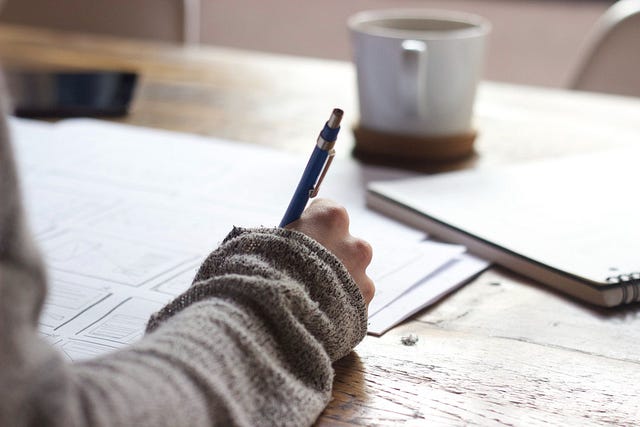
Knowing exactly why I’m delaying has helped me to overcome procrastination. Whether it’s the frustration of making little progress or the uncertainty of how to begin a complex project, I’ve found there’s always a good reason for my avoidance. Now, I apply this knowledge to use pauses to my advantage.
“If you’re an active procrastinator, (like I am), embrace it,” writes Susanna Newsonen, a happiness life coach, keynote speaker, and writer.
“Embrace it so you can get more things done. Embrace it so you can start listening to what your intuition is trying to tell you. Embrace it so you can start doing the things that matter the most to you. That’s how you will welcome happiness into your life.”
But don’t embrace it for everything.
First, ensure you’re facing a task where procrastination will help, instead of hinder, your progress. Art Markman, a professor of psychology and marketing at the University of Texas, points out that procrastination is most useful for the human mind when we’re in the middle of hard intellectual work.
“Chipping away at tough problems is actually really taxing on your memory,” he writes.
“If you don’t procrastinate — within reason — by giving yourself little breaks and rewards along the way, you’ll make things a good deal harder and slower for yourself.”
Avoid procrastination if deadlines stress you out, or you’re depending on someone else to get your task done, adds Yoram Solomon, founder of the Innovation Culture Institute. But if you’re looking to clarify priorities or clear items off your to-do list, pushing off a task can be illuminating.
Conscious delay can also be useful if you’re preparing a presentation (waiting until the last minute to finish can ensure you have up to date information), or in need of new ideas (pushing a project back can create additional time for collaboration).
That said, not all pauses are created equal. The purpose of procrastinating, Konnikova points out, is “to make sure to have perspective before you start working.” While some delay tactics help to facilitate clarity, others cause further distraction.
Positive ways to procrastinate
Clear your space
Almost everyone has experienced this urge: you sit down to work, and suddenly all you can think about is your dirty desk, or that dresser you promised yourself you’d clean out.
Instead of forcing yourself to work through it, Jessica Wildfire, professor and author of “How to Train Your Demon,” suggests giving in to the urge to clean.
“Forcing yourself to do work when you’d rather be cleaning doesn’t make you a more productive person,” she explains. “Allowing yourself to take care of all those little things can free you up to concentrate later.”
Mind wandering
Science has proven that the brain cannot effectively or efficiently switch between tasks. When we try and force it to do so, our productivity can drop by as much as 40 percent.
Next time you’re tempted to scroll through your social media feed while avoiding your work, try “mind-wandering” instead. Focus on whatever comes to you naturally for a period of time, versus forcing yourself to concentrate.
In 2012, researchers found that when study participants were given time to let their minds wander, they generated more creative uses for everyday items. Additionally, a study of 116 university and 117 vocational Chilean students found that mind wandering improved their ability to solve problems and puzzles.
Boost your mood

Procrastination often makes us feel guilty. Instead of swapping work for fun, we typically do something that makes us feel terrible, like scrolling through social media. But the late psychologist Alice Isen and her colleagues found that being in a good mood can make you a more effective and creative problem solver.
“Buying yourself something you want or just eating a snack will also create a small burst of positive emotion — temporarily brushing aside any frustration you’re feeling with the project you’re puzzling over,” Markman writes.
This tactic becomes particularly useful when we learn that procrastination is a way of coping with challenging emotions.
According to Dr. Fuschia Sirois, professor of psychology at the University of Sheffield, the tendency to push a task off typically comes from our inability to manage any negativity we feel when faced with it.
Sirois explains that emotions like boredom, anxiety, insecurity, frustration, and self-doubt all have the power to keep us from engaging in tasks associated with these feelings. By promoting self-kindness and compassion in these situations, we can decrease stress, and develop more positive feelings about doing the next thing.
Get active
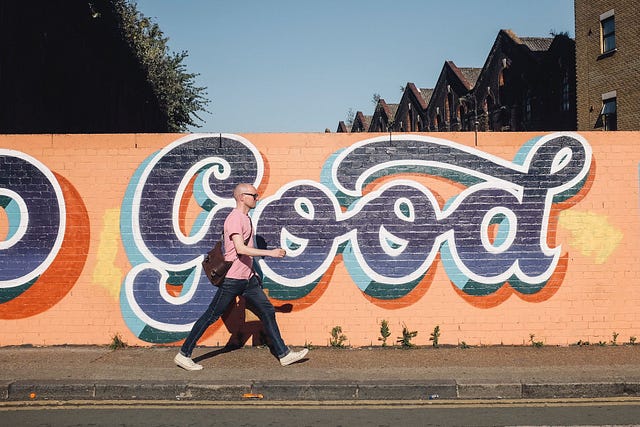
When we’re struggling to come up with new ideas, it’s often because our brains or bodies are exhausted and unable to release the chemicals we need to get inspired.
Movement can help in two ways. First, exercise itself releases mood-lifting brain chemicals. Second, researchers have found that spending time in nature can lower stress and boost innovation.
“I felt more creative,” Michael Grothaus, a novelist, screenwriter, and journalist writes of a period of time he regularly spent in nature. “This might sound weird, but it was easier for me to generate story ideas and I felt more creative overall. This was especially true when I was actually walking or hiking. I had a clarity I normally didn’t possess while walking through the city.”
The best plan for procrastination, however, may be no plan at all.
“By using busyness as a shield to protect ourselves from doing the things that we actually should do, we fail to make our dreams our reality,” says performance coach Jari Roomert.
Instead, we can actively look for opportunities to develop the time, space, and experience we need to feel more engaged and inspired. As we do so, we may find ourselves reaching beyond productivity — into our own, innate ability to create a more positive life.






























































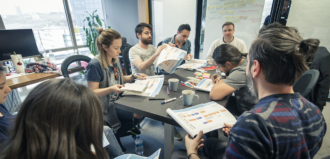





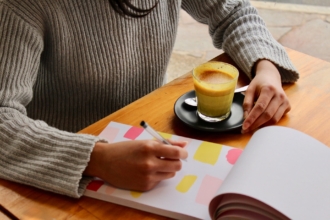

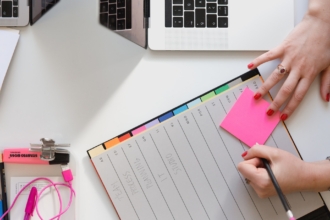
Send Comment: